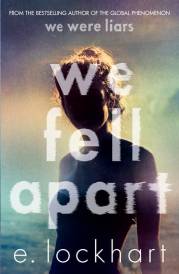Free Solo Directors Interview
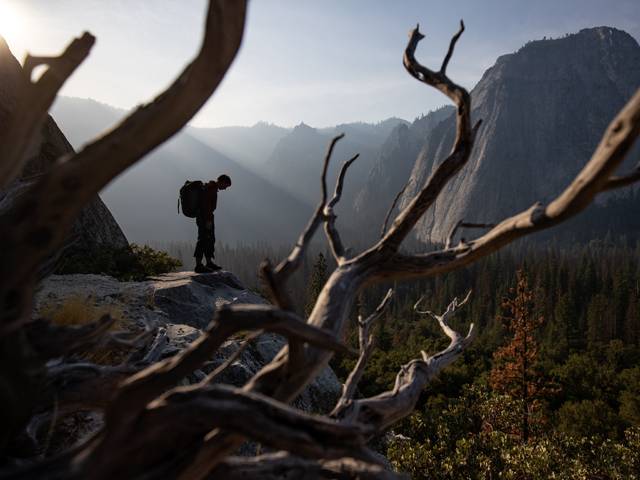
Free Solo Is An Edge-Of-Your Seat Thriller
Directors: Elizabeth Chai Vasarhelyi and Jimmy Chin
Running Time: 100 minutes
Synopsis: From the directors of Meru comes Free Solo, a stunning, intimate and unflinching portrait of the free soloist climber Alex Honnold, as he prepares to achieve his lifelong dream of climbing the face of the world's most famous rock - the 3,200ft El Capitan in Yosemite National Park... without a rope. Celebrated as one of the greatest athletic feats of any kind, Honnold's climb set the ultimate standard: perfection or death. Succeeding in this challenge places his story in the annals of human achievement.
Free Solo is an edge-of-your seat thriller and an inspiring portrait of an athlete who challenges both his body and his beliefs on a quest to triumph over the impossible, revealing the personal toll of excellence. As the climber begins his training, the armour of invincibility he's built up over decades unexpectedly breaks apart when Honnold begins to fall in love, threatening his focus and giving way to injury and setbacks. The film beautifully captures deeply human moments with Honnold as well as the death-defying climb with exquisite artistry and masterful, vertigo-inducing camerawork. The result is a triumph of the human spirit.
Free Solo
Release Date: January 24th, 2019
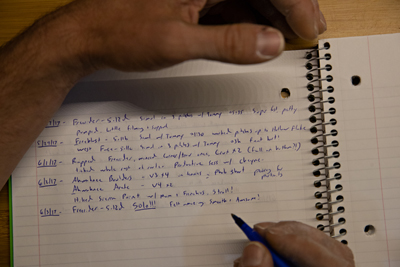 Interview with Chai Vasarhelyi
Interview with Chai Vasarhelyi
Question: What drew you to want to make this film?
Chai Vasarhelyi: Alex is fascinating. And he's a good friend of ours. And it was clear that a film like this should be made. Before we knew that he was planning to free solo El Capitan, we were flirting with the idea of a character study. Alex and I set up a time to meet, and he came to stay with me in New York. It was there that he told me that he was working on free soloing El Cap. And that changed the game a little bit.
What drew me to the story was the very, very simple fact that when he was a young boy, it was easier for Alex to go climbing by himself without a rope that it was for him to talk to somebody else and ask them to go climbing with him. That little kernel was something that I could empathize with, that I felt like a lot of people would empathize with. It was so unlikely for someone like him " given his talent, you could never really imagine that he came from that place. There was also the story's aspirational quality: If he can do this with his fear, what can I do with my fear?
Question: What was Alex like as a subject to profile?
Chai Vasarhelyi: Wonderful, because he's so candid. He is a very candid, honest, intelligent person. He's one of the best-read people I know. He's incredibly engaging, very open about his own limitations and also very open to thinking about the questions we asked. And he's so intelligent that he'll come back to the question if he doesn't know the answer. He's very engaged that way.
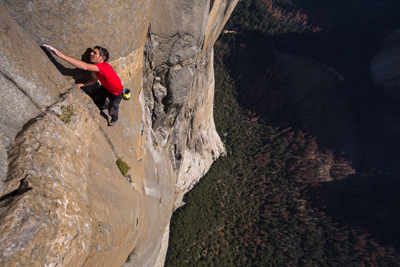 Question: What were some of the biggest challenges that you faced in making the film?
Question: What were some of the biggest challenges that you faced in making the film?
Chai Vasarhelyi: Clearly the danger and the ethical questions around the danger: Is this film something we even want to do? And if so, how do we to negotiate those lines in a way that both honours Alex and the way that he would love this climb to be captured? And how do we get the emotional moments that we know are needed so that this is more than just a climbing movie? As a filmmaker you know you're there for those real moments, and they're sometimes the most difficult moments for the subject. In terms of the risk, Jimmy definitely shoulders most of it because this is his world. His career is to assess risk in exactly these types of circumstances. My weight is more about: Are we doing the story itself justice in a way that respects the state of mind that you have to be in to free solo a mountain? Alex is so studied and prepared, and he's got a process. So how do you respect the process as well as film the real moments that are important? How do you make sure you can see his eyes before he does the climb because that's what allows an audience to engage? That was probably the most difficult part " negotiating a way to make a film that was meaningful within the very real danger of his endeavour.
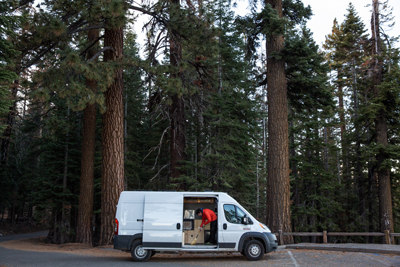 Question: And what did you think when you saw El Cap?
Question: And what did you think when you saw El Cap?
Chai Vasarhelyi: It's absolutely enormous. Jimmy and I went and sat in the meadow and looked up at the lights of the people spending the night on the wall. It is unfathomably large. And what's so unique about Yosemite is you can walk right up to it.
Interview with Jimmy Chin
Question: When did you first meet Alex Honnold?
Jimmy Chin: It was around 2009. Alex was this up-and-coming climber. No one really knew much about him but then all of a sudden, he pulled off some of the most daring climbs the climbing world had ever seen. He free soloed a route called Moonlight Buttress in Zion National Park and then he free soloed a very iconic climb, the Regular Northwest route at Half Dome. Before Alex, there were a few really great free soloists, probably the most famous of whom were John Bachar and Peter Croft. Free soloing is extraordinary and takes a lot of commitment because you're climbing without a safety system to catch you if you fall or make a mistake.
Normally when you're climbing, and you get scared or tired, your technique starts to suffer. Your breathing increases, your heart starts to pound. Essentially, your capacity to climb falls apart. If you're climbing with a rope, you have the option of letting it fall apart and the rope will catch you. When you're free soloing, obviously that's not an option. You have to have a different level of mastery over your physical and mental capacity. You have to be able to completely control fear, which is a very difficult thing to manage. And what Alex did that's extraordinary is he climbed really big walls. It required a great mastery on a very high level. When people found out that he did it … Well, it's not like anybody has to brag about free soloing Half Dome. It tells you everything you need to know about that person's ability as a climber. At the time free soloing Half Dome wasn't even something that climbers were talking or thinking about. It wasn't even in the consciousness. So, when he did it, it was like, "Wow. OK. The bar just got moved."
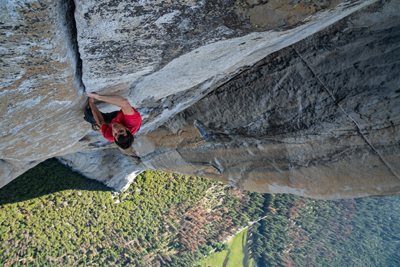 Question: When did you first learn that Alex wanted to free solo El Capitan and what did you think when you heard about that?
Question: When did you first learn that Alex wanted to free solo El Capitan and what did you think when you heard about that?
Jimmy Chin: Yosemite is kind of the proving grounds for climbers, especially in the big wall world. If you're a serious surfer, you move to the North Shore of Oahu and put your time in surfing Pipeline " that's where you cut your teeth and make your name. If you're a climber, you go to Yosemite and you climb Half Dome and El Capitan. They're the two iconic formations and climbing them is a rite of passage. So, after Alex climbed Half Dome, if you even dared to think about it, El Cap was the next logical step. But people weren't talking about it. Knowing Alex all of these years, I let myself think about it, but I never considered it a possibility. We were friends and I didn't talk about it in case putting it out in the ether would in some way make it something that he would think about. I didn't want to talk with him about it.
Question: How did the film about his ascent of El Capitan come to be? Did Alex come to you about the climb?
Jimmy Chin: After the success of our film "Meru" at Sundance, Chai and I were getting calls from studios and producers about what was next for us. Chai and I had talked about a few different ideas. In the back of my mind I thought of making a feature film about Alex, but I was conflicted because free soloing is dangerous, and a film about Alex would obviously involve a lot of free soloing. I knew exactly what such a film would entail, the kind of pressure it would put on myself and Chai and our crew because there's not a lot of room for error and the stakes would be extraordinarily high. I said to Chai, "I need you to think about it." Like me, Chai believed that the film could be very interesting because the choices you have to make in life to be a free soloist really point to some very hard decisions " in a way, to the essence of some of the hardest decisions that a person has to make in life. How does one make those decisions? That's interesting. At this point, we were only talking about a film about Alex because he had never said to me that he wanted to free solo El Cap. So, Chai had a conversation with Alex. She just wanted to get a sense of whether he would be an interesting character to make a film about. And in the conversation, he told her that he was thinking about free soloing El Cap. So, when I talked to Chai after and asked, "How was your conversation with Alex?" she said, "It was great, and he told me that he would love to free solo El Cap."
I just stopped in my tracks. At that moment I thought, "I don't think I can handle that; I don't think I can make that film." As a climber and a filmmaker, your mind just goes to one place: imagining Alex falling and the fact that I would probably be there, and we're talking about a good friend of mine. And of course, in my field of work you're very conscious of "Kodak courage," when people do something they wouldn't normally do because they're being filmed. I specifically don't work with athletes I feel make decisions that way. In a lot of ways that's what being a professional is: being able to make good decisions, not to feel the pressure. But honestly, it's impossible not to feel the pressure if there's a film happening and a lot of people working on it and money involved and everybody's spent weeks getting in position. That said, if there's one person that I trust more than anybody I've ever worked with to make the right decision, it's Alex. He's just wired in a way where he manages external pressure very well. He doesn't let it affect his decisions … but we're all human.
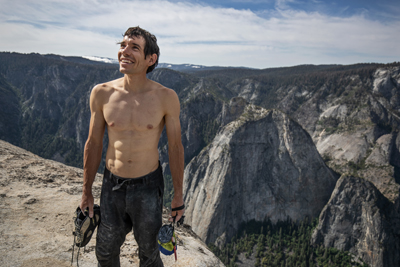 Question: So many people who see footage of Alex's climbs can barely stand to watch " even when they know the outcome of the climb and that he made it safely! What was it like to be filming the climb in real time as it was actually happening?
Question: So many people who see footage of Alex's climbs can barely stand to watch " even when they know the outcome of the climb and that he made it safely! What was it like to be filming the climb in real time as it was actually happening?
Jimmy Chin: Before you start, you have to check your basic assumptions: Do I trust Alex to make the right decisions? And remind yourself: Yes, I do. Once you've done that, you have to put it away and go on to autopilot and focus on what you're doing because there's a lot going on. You can't make any mistakes either. You can't drop a lens cap that could fall 80 feet, 100 feet, 1,000 feet and hit him. You could kill him. There's plenty to think about. And, of course, you're hanging off a huge wall yourself, so you have to be focused on your own personal safety as well. And you have to keep your camera equipment dialled in and know what lenses you're going to use. And you have to have enough water and food for the day. Things are happening for you as a climber and as a filmmaker. I say to my crew all the time, "No mistakes, and stay focused on the task at hand and don't get distracted." It's really easy to get distracted when someone's free soloing 1,000 feet off the ground in front of you.
Question: Let's talk about the logistics of filming the El Cap free solo ascent. How many cameras did you use? Where were you as Alex was climbing?
MORE




